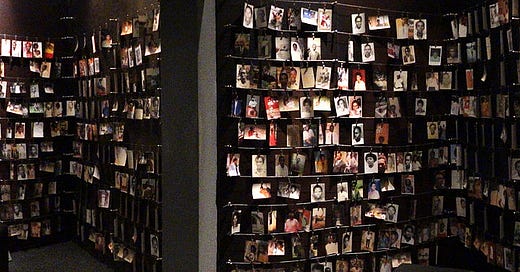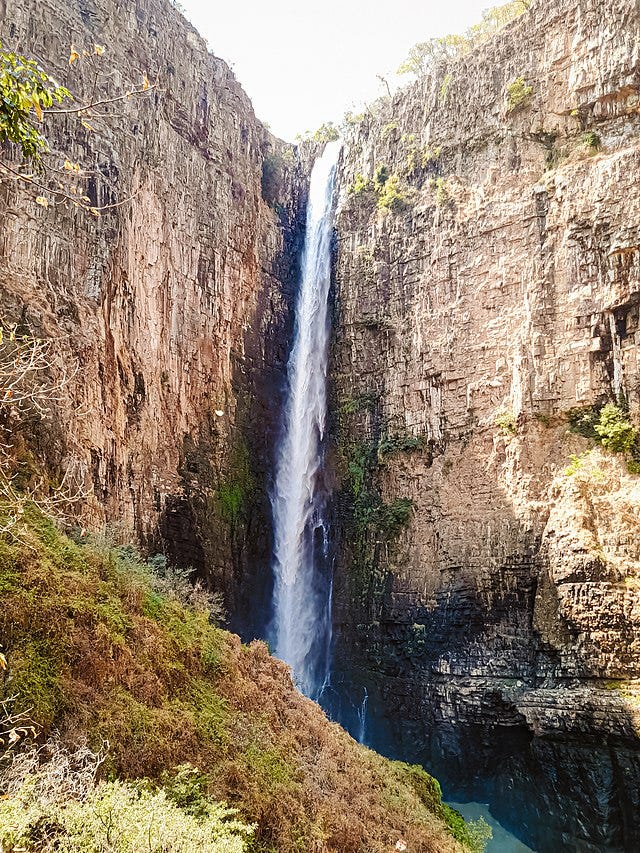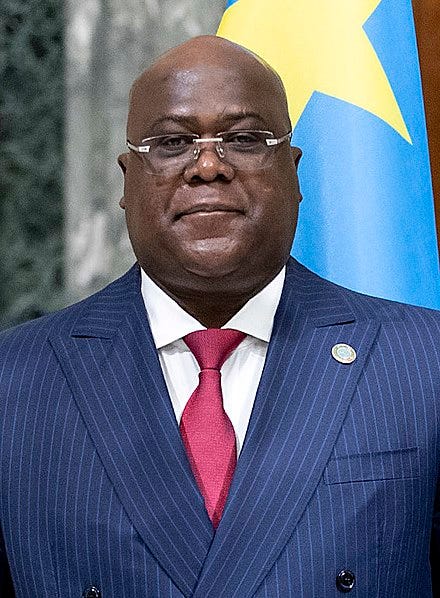🔅 Rwanda Genocide Memorials as UNESCO Sites & 480,000-Yr-Old Woodworking Evidence Found in Africa
Plus, Kenya Sets Sights on Haiti's Gangs & Why Congo's President Wants The UN Out Sooner Than Planned?
Photo of the day
The constitutional court of Madagascar in Antananarivo
Markets:
🔴 Nigerian SE: 68,271.14 (-0.09%)
🔴 Johannesburg SE: 74,824.09 (-1.80%)
🟢 Ghana SE: 3,168.35 (+0.11%)
🔴 Nairobi SE: 96.93 (-0.25%)
🔴 US S&P 500: 4,362.60 (-0.90%)
🔴 Shanghai Composite: 3,084.70 (-0.77%)
*Data accurate as of the close of markets across the continent
Brief & Bright: Africa's Top Five
Rwanda's Genocide Memorials: More Than Just a Thousand Hills
Four memorials commemorating the Tutsi genocide in Rwanda have been named UNESCO World Heritage sites. These sites, including the main Genocide Memorial in the capital city of Kigali, are a sombre reminder of the atrocities that took place in 1994. The museum at the Genocide Memorial displays harrowing artefacts such as victims' skulls and bone fragments, as well as weapons used by the genocidaires. Other sites, like the Nyamata church and Murambi Hill, were the scenes of mass killings during the genocide. The Bisesero site is particularly sensitive, as it commemorates the resistance of Tutsi people against their attackers. In June, the French government reopened an investigation into allegations that their military-humanitarian mission knowingly abandoned Tutsi civilians, leading to the massacre of hundreds. These sites serve as a powerful reminder of the horrors of the past and the importance of never forgetting them. That said, the distribution of the sites on the World Heritage list has sparked some debate, with many pointing out that only 12 out of 27 African countries have any inscribed sites, whereas countries like France and Germany have over 50 each.
Woodworking Goes Way Back: At Least 480,000 Years Ago in Africa
Humans in Africa were getting crafty with wood way before previously thought. A new study found evidence of notched and tapered logs in Zambia that date back nearly half a million years. This discovery pushes back the historical record of structural woodworking by a whopping 470,000 years. Before, the oldest known examples were 9,000-year-old platforms on the edge of a British lake. How did this wood survive for so long, you ask? Well, it turns out that ancient wood products are extremely rare because they typically degrade over time. But these logs were buried under sand, which helped preserve them. The researchers believe that these ancient humans used wood not just for tools, but also for more ambitious creations like platforms and walkways.
Congo's President Wants UN Peacekeeping Force to Hit the Road
Congo's president has had enough of the world's second-largest UN peacekeeping force hanging around his country. He's calling for their accelerated retreat (December 2023 instead of December 2024), saying they've failed to bring peace to the conflict-ridden eastern region. It's been 25 years, and they still haven't managed to stop armed groups from fighting over gold and other resources. Plus, the Congolese military recently cracked down on protests against the UN mission, leaving 43 people dead and 50 injured. The protest reflects the frustration of the people who feel like the UN's presence is useless. It's time for Congo to take charge of its own security, says the president—who also happens to be seeking a second term in the upcoming election set for... December 2023.
Nigeria's Governorship Drama: A Curfew, a Tribunal, and a President's Party
The political scene in the northern state of Kano is heating up, where a 24-hour curfew has been declared after a tribunal overturned the election of an opposition candidate as governor and declared a member of President Bola Tinubu's party the rightful winner. This decision sparked fears of unrest, and police are ready to arrest anyone who breaks the curfew. Governors in Nigeria have a lot of power, and their support can make or break a presidential candidate. But this ruling isn't the end of the road for the opposition candidate—he can still appeal to the Supreme Court—and it is not uncommon for governor election results to be overturned in Nigeria.
Kenya's Ruto Confirms: We're Sending Police to Haiti to Deal with Gangs

Kenya's president, William Ruto, has pledged to lead a multinational force in Haiti to combat the growing gang violence in the country. Although not everyone is thrilled about the idea of Kenyan police being in charge of the operation (cases of police abuses in Kenya have doubled under Ruto's tenure), the US is pushing for it. In case you were wondering, there are only about 10,000 police officers in Haiti for a population of 11 million, and the gangs are so powerful that they control an estimated 80% of the capital city, Port-au-Prince. The country's leader, Ariel Henry, has been asking for international help since the assassination of President Jovenel Moïse in July. But some people are worried that a multinational force led by Kenyan police could end up causing more harm than good, and a powerful gang leader in Haiti has already warned that he'll fight back against any international force that commits abuses. Besides, what's in it for Kenya? No one knows yet, but it's a good question to ask.
Food for Thought
“A debt between children born by the same mother is paid in a clever way.”
— Kenyan Proverb.
Are we hitting the mark?
Enjoying Baobab's updates? Spread the joy and share us with friends and colleagues — we'd be thrilled to have them join!
Feedback or thoughts? Just hit reply. We're all ears!








